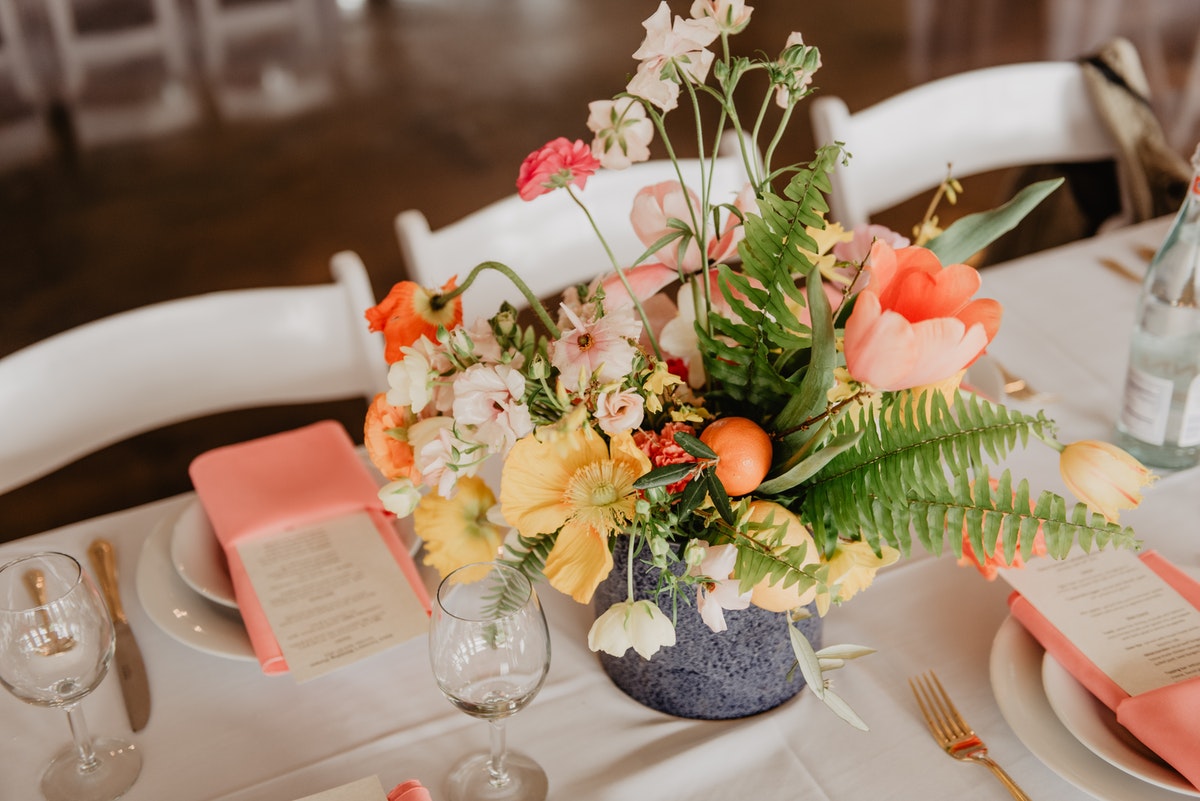Businesses large and small worldwide are turning to event planners when they need help organizing an event. If you’re interested in learning how to start an event planning business, here’s everything you need to know.

What is Event Planning?
Think back on some of the events that you’ve gone to recently. Maybe it was a wedding, a family reunion, or even a birthday party thrown by someone you knew. What did these events have in common? All of them were planned by an event planner!
An event planner helps ensure all the details go smoothly so that the host can enjoy their time with guests without worrying about making sure everyone has food or drinks or knows where to go. Chances are everyone probably muddled through, but what if there was a way to make the event better and more enjoyable for all of the guests?
Event Planning Job Duties
Beyond the planning of large events, and fundraisers, one of the primary responsibilities of an event planner is helping people coordinate their schedules with the host or organizer.
An event agency takes on this role by managing logistics, vendor coordination, and attendee engagement to ensure seamless execution. For instance, a potential client might need someone to help plan their anniversary dinner or big birthday bash.
Hire an experienced event photography company for your event to provide photo and video services to document your conference or fundraiser.
This person hires you as an assistant to ensure everything goes according to plan, from reserving a location and booking entertainment to ensuring everyone knows about it and what to expect.Hire
Another example would be a business owner who is relocating and needs help organizing a housewarming party (typically one of the most popular types of events for planners). This person hires you to hire caterers, DJs and ensure that everything goes smoothly with ordering food and drinks.
How to Start Your Own Event Planning Business
So now that we know what event planning involves, let’s take a look at how you can start your own event planning business:
Plan Ahead: The first step to owning an event planning business is to plan ahead, as in months and months ahead. It takes a long time to develop fresh concepts for themes and venues that haven’t been done before. Your planning process should take as much time as the events themselves to ensure everything comes out perfectly.
For example, if you’re hosting a Thanksgiving-themed party, make sure there isn’t another one scheduled for the same day. Consider alternatives like hosting it on a different holiday or weeknight instead of a Thursday. Also, keep in mind you’ll need a few months lead time before sending invitations and raising awareness about your event, so guests have enough time to clear their schedules.
Create a Website: The first thing someone looking for an event planner or assistant will do is search online. You need to have an attractive website with all the information people might need to get them interested in hiring you. Ensure your site includes samples of past work along with testimonials from happy customers.
Of course, make sure your site looks nice and functions well on all devices (since most people will be browsing through their smartphones or tablets).
Know Your Niche: It’s essential to have a niche, such as event planning, release events, funeral planning, etc.. in mind when starting an event planning business. The last thing you want is to be all over the place with your events. If you try to please everyone, you’ll fail at pleasing anyone. People are more likely to hire planners who specialize in their preferred function.
For example, if someone wants a high-class catered wedding, they’ll call up the most expensive 5% of wedding planning services rather than hiring the cheapest one around who also happens to do weddings. Your best bet is to socialize with potential clients and see what type of events they usually host so you can focus on those instead of doing everything under the sun.

Know the Trends: For your business to succeed, you’ll need to stay up-to-date with trending events and new ideas. Things like Pinterest boards and Instagram accounts are great places for discovering new ideas and staying ahead of the game (literally).
Get Creative: There’s more than one way to steal people’s attention, but nothing screams “unique” more than creativity. It takes a lot of thinking outside the box, and some practice before perfection, so don’t be afraid to test things out.
Remember those Pinterest or Instagram accounts we mentioned? They could also double your portfolio so clients know what type of work you can produce.
Decide How Much You’ll Charge for Your Services: Pricing is always a difficult step when starting any small business, but considering that you’ll generally earn 75% of contracted fees makes this decision less tough to work out.
When deciding how much to charge for your services, it’s important to consider the variability in pricing, especially in specific markets such as weddings. Wedding venues can range from picturesque beachfronts to grand banquet halls, and this diversity significantly influences pricing. Additionally, getting married in Texas is vastly different from getting married in California, which also plays a crucial role in determining costs.
You can also choose to have different tiers of packages available, which allow you to have more flexibility when working with clients.
Be Sure to Join Local Associations: Joining an organization can help increase your credibility, especially if other event planners are members. Organizations will also schedule networking events, which ultimately enable you to meet people in the industry that could turn into future clients/mentors/employees.
Network: One of the best things about being a part of an association is meeting like-minded individuals who can provide valuable guidance and feedback throughout your business venture. Make sure to attend every possible networking event, speak with everyone you meet, and try not to sell yourself too much – work on providing value for others.
It’s always good to keep business cards on you, just in case you have the opportunity to meet someone.

Plan Sample Events: Find some places willing to let you test your skills as an event planner before taking on large commissions. This could be anything from planning a wedding reception or birthday party for one of your friends or even orchestrating a fundraiser event for local non-profit organizations.
Use these events to gain experience and build up your portfolio so potential clients can see what type of work you do.
Have Fun: If you’re not having fun doing what you love, there’s no way it’ll ever succeed anyways. Whether you enjoy the creative process or just like managing everything behind closed doors, event planning should be one of those things that get you excited because why would anyone want to do something they hate?
All work and no play make running a successful event planning business pretty difficult, so don’t forget to take some time off and attend events as a guest to see how other companies run their operations before jumping into this crazy industry full-time!
Conclusion
It would be best to always have a business plan ready before diving into any new adventure because it’ll help guide you when things aren’t going according to plan. Building a business plan isn’t all too difficult, and there are plenty of free resources available online.
Running your own business is always difficult, but there are some perks to working for yourself. Not only do you have complete control over the entire process, but the skills you learn will also help you with any future career ventures.
If event planning doesn’t end up being your thing, then at least you’ll have plenty of experience that can be transferred elsewhere.